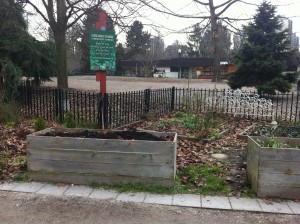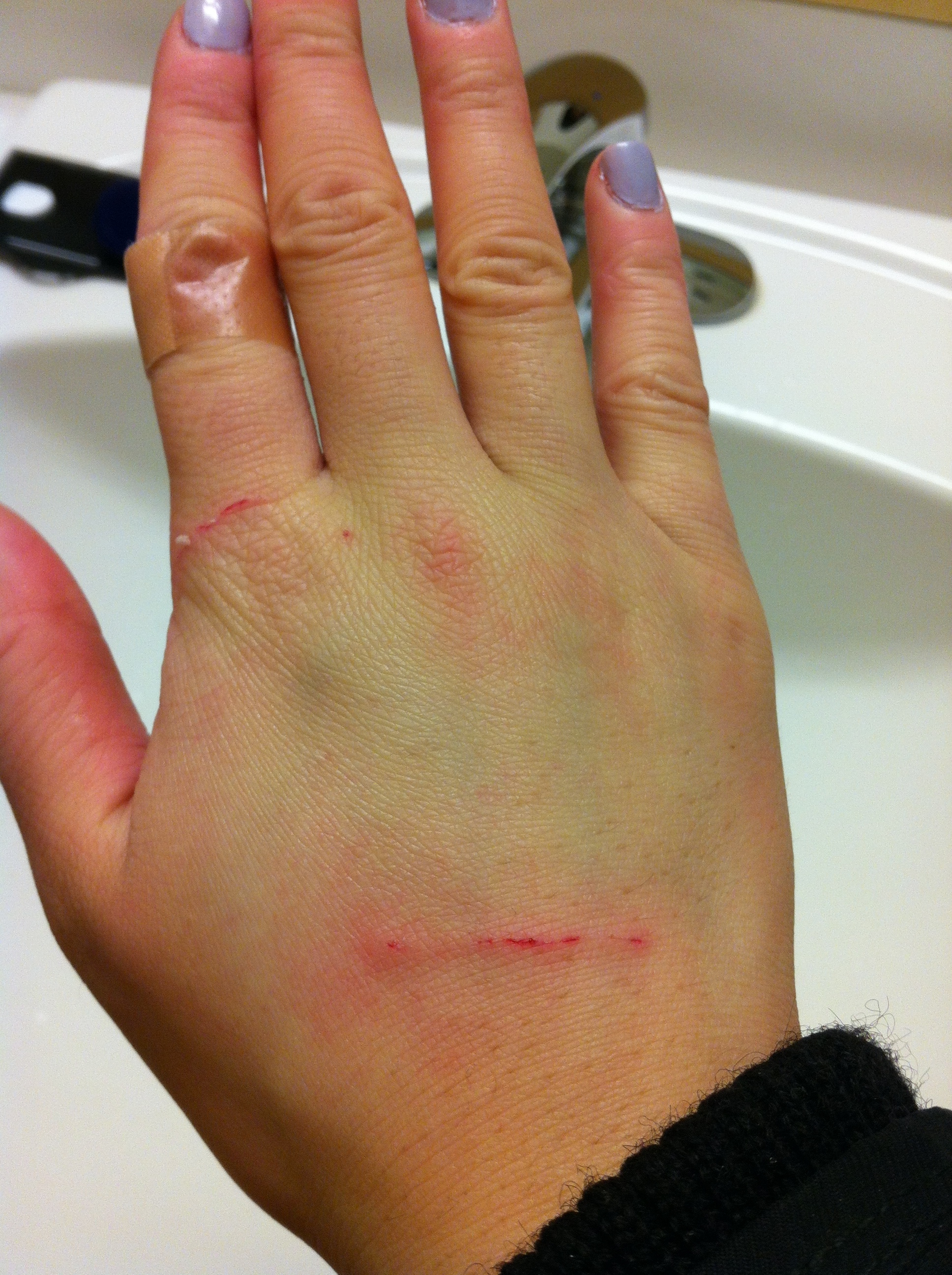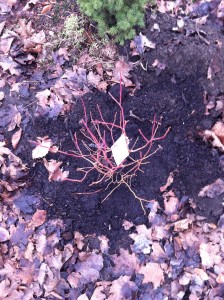One of the highlights of this week’s visit was helping out a resident with his garden work. He has a plot of land in Nelson Park, which is conveniently located right across Dr. Peter Centre. A portion of the park is dedicated to community gardeners, some of which are the residents at the Centre. An passionate gardener himself, the resident was ecstatic to be able to implant two blueberry plants he purchased at a local nursery. I assisted him with shovelling, implanting, mixing manure into the soil and adding compost-enriched soil. I also mixed in some enriched soil into one of his raised garden beds, so it will be ready for vegetable planting in the future. It was simple and straightforward work. It’s nice to be able to do something completely unrelated to school. Bonus: cooperative weather!

Unfortunately for me, I unknowingly scraped my hand on a rose bush (ouch). Although they were superficial cuts and not particularly painful at all, I had to exercise caution, as infections can be transmitted through body fluids on open sores (“Contact with Blood or Body Fluids: Protecting Against Infection”, n.d.). When working in a high risk environment, it becomes even more important to practice extra precautions. Being a medical First Responder myself, I am very careful about protecting myself and other people I work with. Upon returning to the Centre, I promptly cleaned the cuts right away. As you can see below, I had bandaged up a pre-existing cut before I started my shift for the week. After all, it’s better to play it safe.
That aside, I met a couple of other staff members that work at the Centre. One of them works as a recreational therapist, whose new side project happens to be volunteer coordination. Not knowing what recreational therapy was, I was able to speak to her at length. Her role is to plan events and activities for the residents in order to improve the overall well being. Some of the events that she plans include movie outings, field trips, lunch/dinner events, movie nights, coffee club, and inviting companies (such as MAC Cosmetics) to the residences to provide various services. Overall, the sense that I got was that the activities she coordinates are things that people do in their daily lives. My impression is that the purpose is to (re)integrate residents into the community and to give them a sense of purpose. The other staff member works as a music therapist, whom I met while I went to visit the avid gardener. He was attempting to help the resident tune his violin.

Thinking about my conversations with both the therapists, I find the approach the Centre takes on model of care to differ from my expectations. On their website, one of their concepts which guides clinical practices includes Maslow’s Hierarchy of Needs. This includes physical needs, safety needs, needs for belonging, self-esteem needs, and self-actualization needs (“Model of Care”, n.d.). In order to meet this requirement, the Centre “offers services ranging from basic amenities such as nutrition and laundry to art therapy, psychotherapy and support with medication adherence” (“Model of Care”, n.d.). It’s nice that the Centre’s approach to therapy doesn’t solely rest on one dimension of need, not to mention that it can be quite pleasurable. Having gone to physiotherapy for many months, I can certainly say that I would’ve had more fun if my regimen consisted of what the residents are offered! More importantly, all the activities also serve as stress relievers. As there are innumerable ways stress plays a role in influencing immune function (Pinel, 2011), it’s vital that residents have the opportunities to participate in the various activities.

Personally speaking, I would say that this week’s trip to the Centre was very insightful. In terms of potential careers for myself, it is valuable to speak to people who have some background in psychology. Being a double major, it’s nice to be informed about careers involving psychology beyond clinical practice, academia, or counselling. It was also nice to be able to do some gardening for the resident, which would have been a lot more difficult to do himself otherwise. Come summertime, I can’t wait to to see (literally) the fruits of our labour.
References
Dr. Peter AIDS Foundation (n.d.). Music Therapy. Retrieved from http://www.drpeter.org/dr-peter-centre/programs-and-services/music-therapy/
HealthLink BC (n.d.). Contact with Blood or Body Fluids: Protecting Against Infection. Retrieved from http://www.healthlinkbc.ca/healthfiles/hfile97.stm#F108A001
Pinel, J. (2011). Biopsychology: Eighth Edition. Boston: Allyn & Bacon.